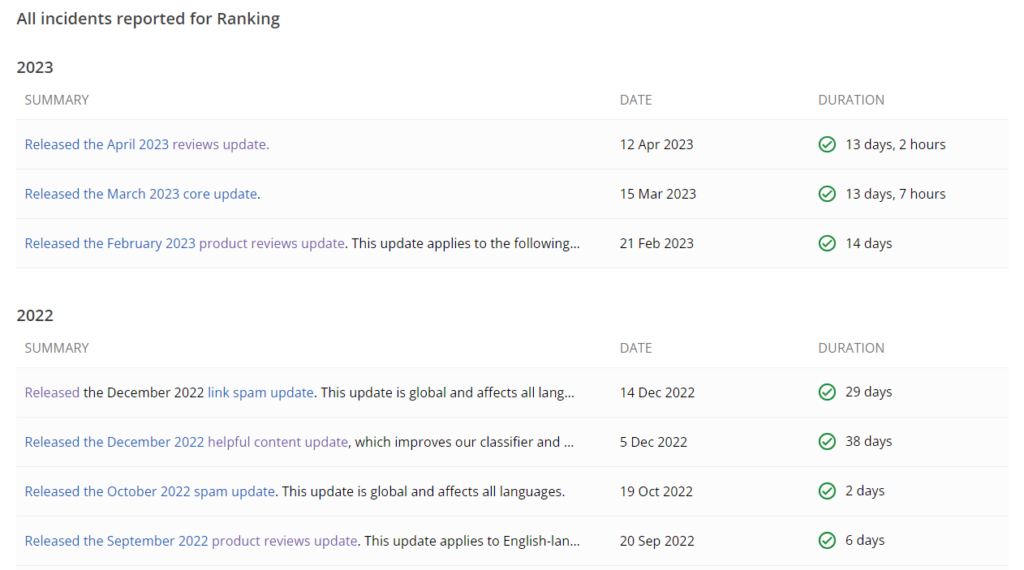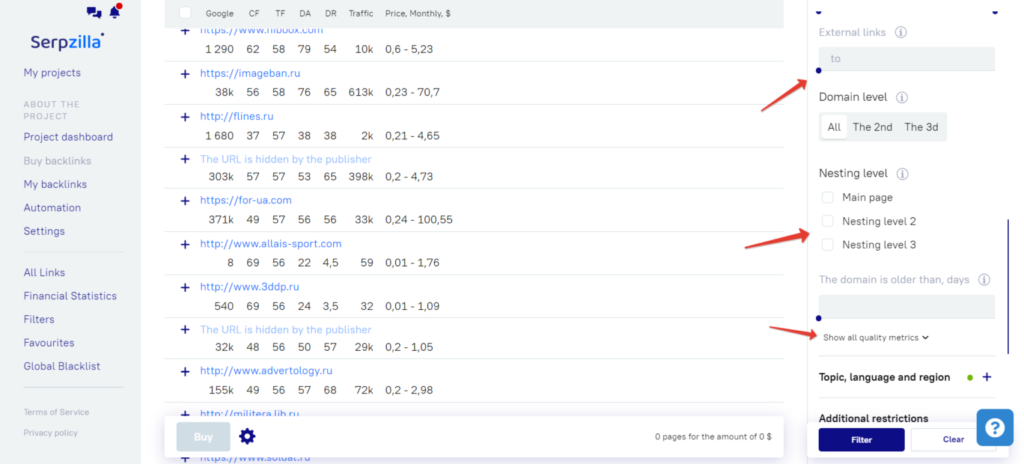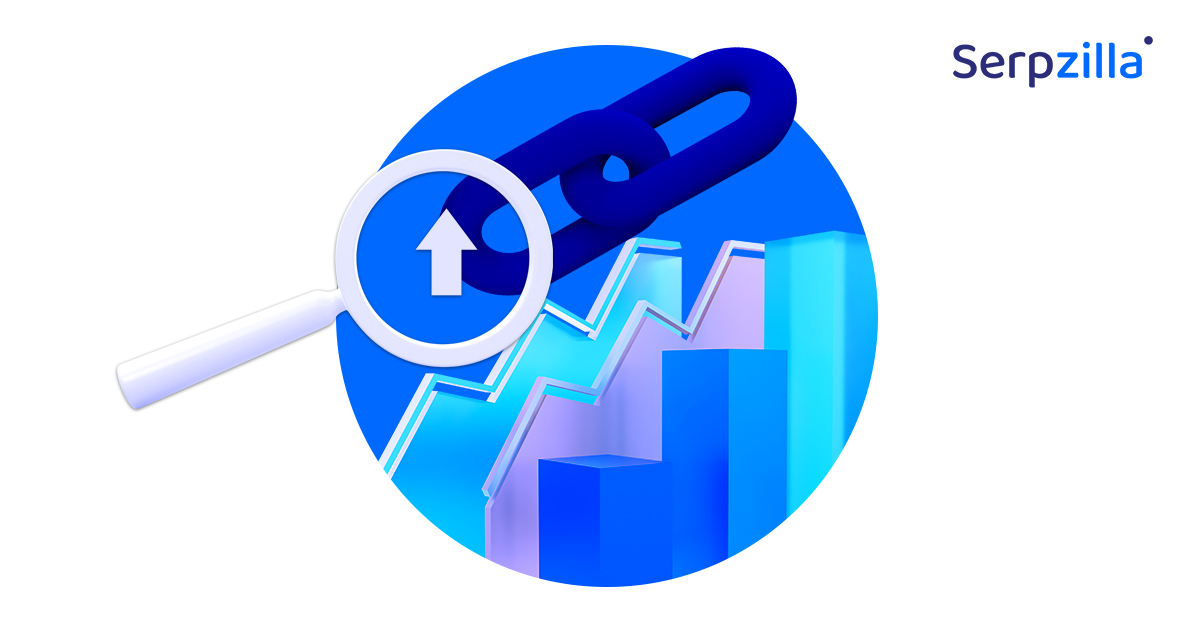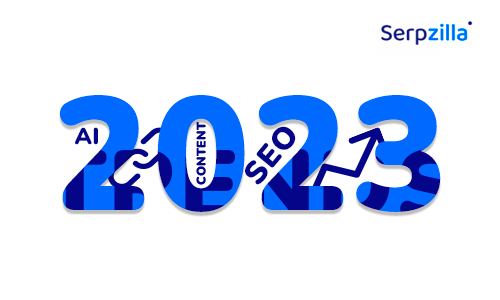The market for SEO services is on the rise today. By extension, the demand for links is also on the rise.
Of late, we’ve been discussing a lot about the rapid changes in the SEO world, the latest link building trends, what SEO professionals need to do, and of course the age-old “SEO is dead” debate.
One thing is clear – that SEO is a very unpredictable and volatile sphere. Even specialists cannot claim to know everything. Granted, there are some things that stay the same, but 20% of the industry is in a constant state of change.
You could be an experienced professional and doing 80% of the “stable” things – such as on-page optimization, content marketing and link building while looking at the new kids on the block carrying out the 20% new strategies such as using ChatGPT for SEO. You might think of these strategies as unnecessary or unproductive. On the other hand, the new kids on the block might be thinking of you as old school – or to put it not-so-nicely, a grandpa using obsolete strategies.
Google itself is rather conservative in its approach to SEO. This fact is not very obvious, given the pace at which they roll out new updates.

However, if you look closely at these updates, all of them are aimed at preserving or implementing the guidelines that Google has defined in their Search Essentials documentation. None of the updates in the last few years have been as radical (or with long-term implications) as Penguin or Panda.
Then how is SEO changing, you ask?
The State of SEO
Most of the time, the SEO market is linked directly to the business market. At this point, the world economy is not in a great shape. There are a lot of negative predictions for the near future. As a result, businesses across the globe are under a lot of stress.
Ultimately, how the global economy affects you depends on which country you live in and the industry you work in. There are some regions and verticals that continue to grow at breakneck speed even in the midst of economic doom and gloom.
Marketing (read digital marketing) is not an option for businesses regardless of their monetary situation. And as you probably know, SEO is probably the most effective digital marketing channel, in terms of organic reach, conversions and ROI.

The ROI and growth potential from SEO continues to be stable in good times and bad, even as newer channels are proven unreliable and fall by the wayside. SEO delivers organic traffic and leads on a consistent basis.
It’s important to know that how businesses approach SEO depends on the stage of their growth and their objectives. If it’s a small business with a newly built site or one which has never done SEO before, their focus will be classical SEO – a mix of content publishing, on-page optimization and technical SEO.
On the other hand, established businesses will focus more on analytics and experimentation to find incremental gains.
However, link building is a strategy that all kinds of businesses – old and new, big and small – can use at any stage of their growth. In the past five years or so, link building has shown promising results.
In our internal studies, we have seen that clients who stop using Serpzilla regularly lose as much as 40% of their Google rankings. However, since you don’t lose the links that you’ve already built, the gains from link building are probably much more than 40%.
How to Approach Link Building in Today’s Scenario
As we saw, there are various “stages” of SEO – and the strategies you use will differ accordingly. Similarly, for link building campaigns, when you start with a new website and analyze its backlink profile, you usually find that the website has some backlinks but they are not doing much for the site.
The reason for this is that link building never works in isolation. You need other aspects of SEO – such as content, optimized code and meta information – to go along with it. You just can’t create a dummy website with no content and try to rank it with millions of backlinks. You might get a short-term boost in the near-term but in the long-term, your site will figure nowhere.
The key is to build a “natural” link profile for your website. What’s natural depends on the niche of the website and the number and nature of unique domains that link to it. You also need to analyze your competitors’ backlinks and make sure your link acquisition pattern matches theirs, so that it appears natural to Google.
Based on this, you need to strategize how many links to buy and also at what pace to acquire links. Serpzilla can certainly help you in replicating the link building strategies of the pros or trying out customized strategies.
And what about the results of your link acquisition strategy?
A cursory look at the top 10 sites on Google for any keyword will tell you that they have not only a vast number of backlinks, but also a vast variety of links. The type of a link depends on the site from which you get it (such as guest blogs, directory listing or forum links), its position in the content, its format (such as text or image), and so on.
In all the analyses and studies we have carried out so far, we have found ZERO cases where backlinks don’t work. None. Nil. Nada. Especially when the site has done its homework and has a reasonable amount of content and on-page optimization.
Of course the extent to which link building boosts your site’s rankings and visibility is open to experimentation. For example, one of our clients followed an unconventional strategy of acquiring a lot of backlinks from adult websites. Their competitors got wind of it, threw dirt on them, and even reported them to Google. However, since all their links were relevant and contextual, their rankings only got better. This is an exceptional case where bad links are in fact good – but only experimentation can reveal such outliers.
Link building is such a vast field that it allows you to carry out a limitless number of unconventional and creative experiments. Further, Serpzilla also gives you the facility to select your target websites on the basis of specific criteria and metrics.

The only caveat here is to not put all your eggs in one basket. If you only buy links with very specific parameters – say, DA 75+ and traffic >10,000 per month – you will lose valuable time while waiting for the outcome. Any SEO or link building campaign takes at least 3 to 6 months to show results. And after waiting all that time, if it doesn’t work out as you expected, where does that leave you and your client?
So, your best option is to diversify and build any and all kinds of links (with varying parameters) in ratios that match other sites in your industry.
The Road Ahead
It bears repeating that link building by itself is not a very effective strategy. You just can’t buy lots of backlinks and wait for your site to catapult to the top of the SERPs. It never works in the long term, because ultimately Google needs your content to match the intent of the search query.
So don’t pour money into link building yet if your site isn’t ready in other ways. There are some factors that can cripple your visibility even if you’ve built the best links –
- Incorrect canonicalization
- Duplicate content
- Slow loading speed
If Googlebot comes across these and other red flags, it won’t consider your backlinks to be of any worth. In fact, Google might suspect that you’ve built your links unnaturally. Of course, building a million links might get you to position #1 for a day or two, but this is a dangerous tactic – Google will penalize you as soon as they get wind of it.
The Google algorithm is very smart. It takes into account a lot of significant factors while ranking a URL, but it doesn’t necessarily prioritize one factor over the other. Therefore, it’s never enough to excel in one SEO tactic – you need a wholesome strategy that optimizes your website in every aspect.
In SEO, a magic wand might appear from time to time, but the magic never lasts. That is why “trust” is the biggest ranking factor in SEO.
And you can trust our team here at Serpzilla to give you the best research and features we possibly can!








